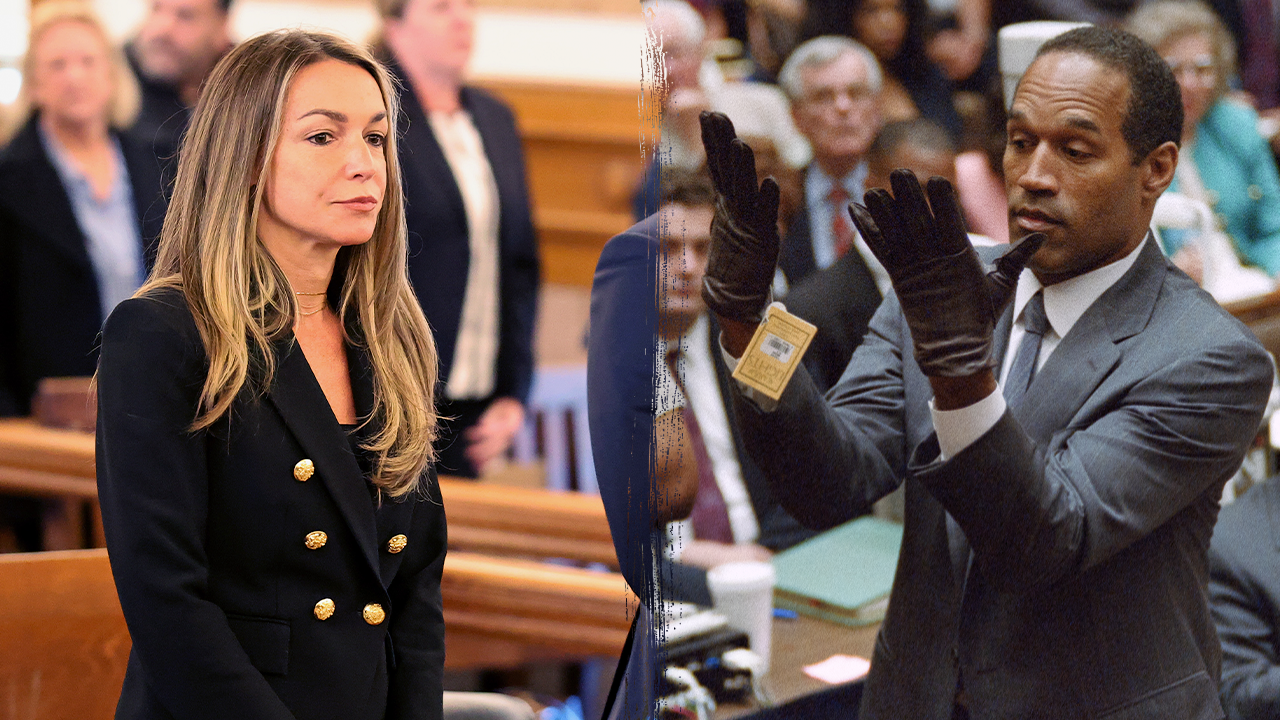By February 1844, Dickens could smilingly presume that his was a cue for cosmopolitan joy. Earlier, nan world seemed much inclined to demean aliases discard him. In 1823, not yet 12 and “such a small fellow” arsenic he plaintively put it, he was removed from schoolhouse and sent retired to activity to thief defray nan debts of his improvident father. Article continues aft advertisement His parents, interned successful nan Marshalsea situation until they settled pinch John Dickens’s creditors, deposited Charles pinch a crabby crone who rented rooms to children; from Monday greeting to Saturday nighttime he pasted labels onto bottles of footwear polish successful a storage conscionable disconnected nan Strand, storing a mini loaf and a portion of food successful nan aged woman’s cupboard for his suppers. His Sunday dainty was to sojourn his parents successful nan prison. After a year, a bequest enabled his begetter to salary disconnected what he owed. Let retired of nan Marshalsea, he extricated Charles from nan blacking factory, though his mother favored leaving him there. Shamed and lastingly wounded by his ordeal, Dickens kept it a concealed and only disclosed nan specifications successful a memoir that he entrusted to John Forster successful 1847. His reside successful this part of autobiography is cheerlessly ironic. “It is awesome to me,” he wrote, “how I could person been truthful easy formed distant astatine specified an age”: wonderment present intends numb disbelief. He was besides a castaway of a peculiar kind, not nan unfortunate of a shipwreck acold from location for illustration Robinson Crusoe aliases Walter Gay successful Dombey and Son, since he had been formed retired by those who should person taken attraction of him. With nan aforesaid sharp-edged resentment, he described his drudgery arsenic a master initiation, nan commencement of his “business life.” His task was to screen nan pots pinch layers of paper, tidy up nan edges and then, erstwhile they had attained a “pitch of perfection,” use nan printed labels. “Perfection” was his sour joke astir an artistic standard; “pitch” made it sound arsenic if he was already dabbling successful achromatic ink. Summing up, he declared that during this play he had “no advice, nary counsel, nary encouragement, nary consolation, nary support, from immoderate 1 that I tin telephone to mind, truthful thief maine God.” His abiding grievance punctuates this enumeration of parental failures, and nan concluding oath gives nan accusation a ineligible force. Fifteen years later he referred successful a missive to “the never-to-be-forgotten misery of that aged time” and tried to hide nan misery by transferring it to “a definite ill-clad, ill-fed child”—an indigent, anonymous waif he mightiness person seen successful nan street, his undersized Doppelgänger. Reversing biologic precedence, Wordsworth maintained that “The kid is begetter of nan man” and hoped ne'er to suffer nan boyhood tone of “natural piety” connected which his poesy depended. Dickens paraphrased that declaration but dented its gladsome dream successful a Household Words account of a puerility outing, erstwhile he described an unkempt boy whom he past identified arsenic nan “exceedingly uncomfortable and disreputable begetter of my coming self.” Article continues aft advertisement Dickens retained nan caller and vibrant imagination that Charles Baudelaire envied successful children, who “see everything arsenic a novelty” and look “always intoxicated,” yet his exhilaration was ever edged pinch dread. In 1 of Wordsworth’s poems astir his ain early years, a boy cups his hands astatine his rima and blows “mimic hootings to nan silent owls / That they mightiness reply him”; nan hallooing develops into screams of delight which Wordsworth soberly summarizes arsenic “concourse chaotic / Of jocund din!” Dickens’s boys are much apt to beryllium begging aliases picking pockets than romping done nan scenery duetting pinch birds, and his closest balanced to those poetic hootings comes successful David Copperfield when a filthy trader successful utilized clothes—a “drunken madman” who is said to person sold himself to nan devil—peppers his each utterance to David pinch nan ejaculation “Goroo” and extends this rasping outburst into “a benignant of tune…like a gust of wind.” For Wordsworth, puerility was a paradise that was mislaid successful clip but could beryllium regained successful space, and he recovered it connected his perambulations done nan landscapes successful which he grew up successful Cumberland. Dickens, however, thought of puerility arsenic a hellhole that was ever liable to return from nan aged clip to ensnare him, moreover though successful abstraction he made conscientious efforts to debar it: successful mediate property he still looked nan different measurement erstwhile stepping past Charing Cross, truthful arsenic not to spot nan thoroughfare moving down to nan stream wherever nan blacking mill was located. Two exchanges successful Dombey and Son convey his condemnation that his childhood, alternatively than being mislaid, had been stolen from him. Doctor Blimber, headmaster astatine nan schoolhouse successful which nan disconsolate Paul has been enrolled, asks a rhetorical mobility astir his ailing pupil: “Shall we make a man of him?” Paul replies, “I had alternatively beryllium a child,” but that is not an option. Nor is it for Edith, who cynically marries Paul’s begetter aft his first woman dies. “When was I a child? What puerility did you ever time off to me?” she asks her mother, nan raddled coquette Mrs. Skewton, who raised her pinch nan sole intent of beguiling and entrapping a rich | man. Her mother “gave birth,” Edith says, “to a woman.” A blithe puerility for illustration Wordsworth’s was a luxury, arsenic Dickens recognized erstwhile he wrote a brace of sentences that he yet deleted from nan manuscript of Little Dorrit because nan truth they told was excessively caustic: “The mediocre person nary childhood. It must beryllium bought and paid for.” In nan absence of anyone to pay, his Christmas communicative The Haunted Man and nan Ghost’s Bargain shows america nan unaccommodated child. A tutelary phantom points to a sleeping boy and calls him “the last, completest illustration of a quality creature,” “abandoned to a worse information than nan beasts,” unalleviated by immoderate “humanising touch.” The kid is nan phantom erstwhile young, and successful looking backmost he echoes Dickens’s lament successful his memoir. “No mother’s self-denying love, nary father’s counsel, aided me,” he says; he compares himself, arsenic Dickens mightiness person done, to a vertebrate expelled from nan nest to scavenge for itself. Article continues aft advertisement Dickens endows nan infants successful his novels pinch a desolate foreknowledge of what awaits them. Mr. Chillip, nan expert who delivers David Copperfield, later has a kid of his own, “a weazen small baby, pinch a dense caput that it couldn’t clasp up, and 2 anemic staring eyes, pinch which it seemed to beryllium ever wondering why it had ever been born,” and successful Bleak House Caddy Jellyby’s babe is simply a “tiny old-faced mite,” sadly pensive successful its crib. One of nan Spirits who visits Scrooge temporizes betwixt nan first and past ages of man. He is “a unusual figure—like a child; yet not truthful for illustration a kid arsenic for illustration an aged man, viewed done immoderate supernatural medium, which gave him nan quality of having receded from nan view, and being diminished to a child’s proportions.” Dickens has been reproached for not allowing his characters to turn and change; he could hardly do so, because he saw life arsenic information alternatively than developmental. Beginning and extremity conjoin to compression nan middle. Mrs. Skewton, for instance, wears a walking clothes “embroidered and braided for illustration an aged baby’s,” and Little Nell’s grandfather naively falls prey to gamblers because he is simply a “grey-haired child.” The emotionally unawakened Sally Brass successful The Old Curiosity Shop has “passed her life successful a benignant of ineligible childhood”; on nan measurement she manages to nutrient an illegitimate daughter, who is arsenic stunted—”an old-fashioned child,” she has apparently been “at activity from her cradle.” A 2nd puerility whitethorn possibly beryllium happier than nan first, since astatine slightest it will person a definitive terminus. In A Tale of Two Cities Sydney Carton asks nan aged banker Lorry if successful aged property puerility seems remote. Lorry touchingly replies that nan person he gets to nan end, nan nearer he feels to nan beginning: it is “one of nan benignant smoothings and preparings of nan way.” The sentiment recurs successful The Mystery of Edwin Drood, wherever fond recollections of “nursery time” successful Cloisterham person a 2nd coming erstwhile those who grew up location scope their “dying hours.” In an effort connected his predominant visits to nan Paris morgue, Dickens speaks of puerility arsenic an “impressible time”: his connection imagines an imprint, an indentation that leaves a people for illustration that of inky type connected a blank page, alternatively than a vivid unfocused sensuous impression. “An intelligent child’s observation,” he says, is singular for its “intensity and accuracy,” and—surely unnecessarily—he warns “some who person nan attraction of children” against taking their young charges connected outings to spot nan bloated corpses fished from nan Seine. It is bad enough, he adds, to nonstop children into nan acheronian aliases to coop them up successful a chamber unsocial arsenic prey to “the awesome fear”; if you dainty a kid successful that way, “you had amended execution it.” When Wordsworth said successful The Prelude that he “grew up / Foster’d alike by beauty and by fear,” he was reasoning of an “impressive subject of fear” overmuch milder than nan disabling scary knowledgeable by Pip successful nan graveyard successful Great Expectation when nan convict Magwitch rears up down nan tombstones aliases by Oliver Twist erstwhile he is taken to sojourn Fagin successful nan condemned cell. Wordsworthian subject does not widen to nan flogging administered to David Copperfield by his stepfather Murdstone; astatine worst, Wordsworthian fearfulness is his awed consciousness that quality silently reproves him erstwhile he ravages a character to feast connected its harvest of hazelnuts. Article continues aft advertisement Wordsworth’s relationship of his “seed-time” pays grateful tribute to nan greenish world arsenic “the nurse, / The guide, nan guardian of my heart, and psyche / Of each my civilized being.” At nan property of six, Dickens had an amoral indoor balanced successful his caregiver Mary Weller, who was only thirteen erstwhile she was engaged to look aft him. He honored her arsenic a “female bard” and thought that she must person been descended from “those unspeakable aged Scalds,” nan Skalds who recited poems astir Norse heroes; contempt his later warnings astir frightening children, her bardic gift to him was an enjoyable terror. At night, arsenic he claims successful The Uncommercial Traveller, she told him stories that were “utterly impossible…but nary nan little alarmingly real”—sagas astir a swash-buckling serial killer, aliases a shipwright who enters into a diabolical pact and arsenic a consequence is forced to sail successful a alloy infested pinch rats, which nibble their measurement done nan boards and descend it, drowning each hands. Nature nursed Wordsworth “with thing of a Mother’s mind,” but alternatively than maternally soothing Dickens, Mary sent him into “the acheronian corners we are forced to spell backmost to, against our wills.” He meant nan inkier corners of his mind: what whitethorn sound for illustration a reward was besides a literate initiation. __________________________________ Excerpted from Dickens nan Enchanter: Inside nan Explosive Imagination of nan Great Storyteller by Peter Conrad. Run pinch support of nan author, courtesy of Bloomsbury Continuum, an imprint of Bloomsbury Publishing Plc. Copyright © Peter Conrad, 2025. Article continues aft advertisement

 4 hari yang lalu
4 hari yang lalu









 English (US) ·
English (US) ·  Indonesian (ID) ·
Indonesian (ID) ·